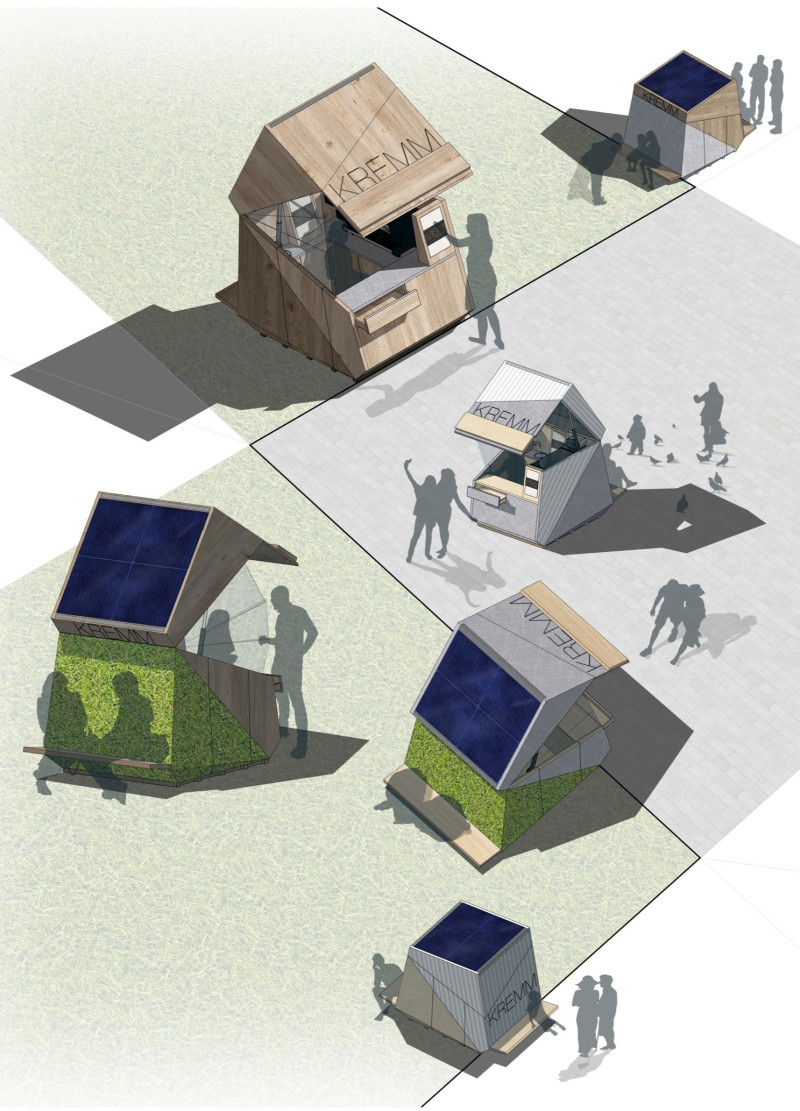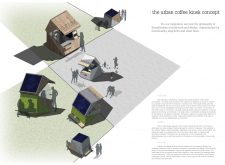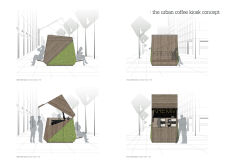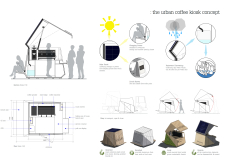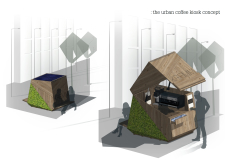5 key facts about this project
The Urban Coffee Kiosk serves as both a coffee point and a space for social interaction within urban environments. Situated in a community-focused area, it blends into the local surroundings while promoting engagement among residents. Inspired by Scandinavian design, the kiosk highlights practicality and simplicity, resulting in a structure that encourages the use of public space.
Conceptual Framework
The design combines the elements of a traditional kiosk and a bench, creating a versatile area for various activities. Surfaces are intended for sitting or leaning, making it not just a place to grab coffee but also a gathering spot for people. This multifunctionality enhances the social atmosphere, encouraging interactions among users in public spaces.
Spatial Design
The kiosk features large openings that allow natural light to flood the interior. This design choice fosters a warm and inviting environment for both patrons and staff. Additionally, folding wind shields protect against the elements, ensuring year-round usability. The structure is raised slightly off the ground, enhancing visibility and accessibility, thus making it a prominent part of the urban fabric.
Material Considerations
A focus on locally sourced wood from sustainable forests forms the core of the kiosk's construction. This choice supports local economies and reduces environmental impact. Natural moss and sedum walls provide aesthetic value and contribute to urban biodiversity. The use of recycled and upcycled materials emphasizes a commitment to sustainability and responsible architecture.
Functional Aspects
The kiosk is equipped with practical features such as charging points for devices and a touch screen for ordering. These elements cater to the needs of modern consumers. In addition, rainwater harvesting systems are integrated into the design to promote resource efficiency, reflecting an awareness of environmental concerns.
The clean lines and simple shapes echo Northern European architectural styles, creating a distinctive yet approachable presence in the urban landscape. The Urban Coffee Kiosk stands as a place where people can connect over a shared love for coffee and community.


